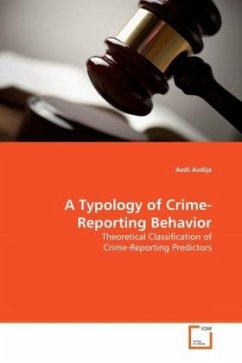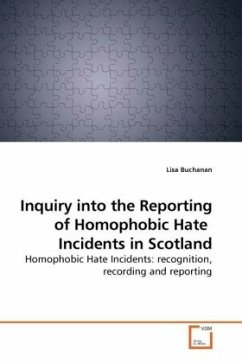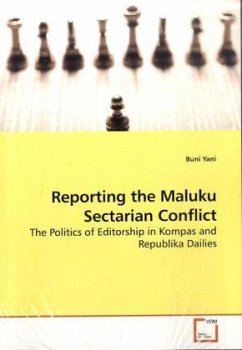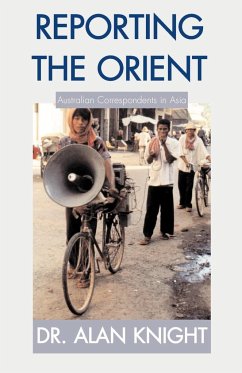
A Typology of Crime-Reporting Behavior
Theoretical Classification of Crime-Reporting Predictors
Versandkostenfrei!
Versandfertig in 6-10 Tagen
52,99 €
inkl. MwSt.

PAYBACK Punkte
26 °P sammeln!
In this book I attempt to develop three theoretical models of crime-reporting behavior. One objective of this study is to determine the effect of a number of crime-reporting predictors on people's willingness to report crimes to the police. Such predictors include police behavior, attitudes toward the police, individuals' demographic characteristics, prior victimization, citizen interaction with the police, fear of criminal retaliation, and crime- reporting anonymity. The results that emerged in the current study show that crime-reporting behavior varies by the severity and the consequences of...
In this book I attempt to develop three theoretical models of crime-reporting behavior. One objective of this study is to determine the effect of a number of crime-reporting predictors on people's willingness to report crimes to the police. Such predictors include police behavior, attitudes toward the police, individuals' demographic characteristics, prior victimization, citizen interaction with the police, fear of criminal retaliation, and crime- reporting anonymity. The results that emerged in the current study show that crime-reporting behavior varies by the severity and the consequences of crimes. This study suggests that certain crime- reporting predictors do not predict all three crime- reporting levels, namely reporting of less serious crimes (e.g., smoking marijuana, selling illicit drugs, painting graffiti, etc.), reporting of medium- level crimes (e.g., physical threats, future terroristic threats, etc), and reporting of serious crimes (e.g., kidnapping, rape, murder, etc.). This suggests that willingness to report crime to the police is multilevel.












